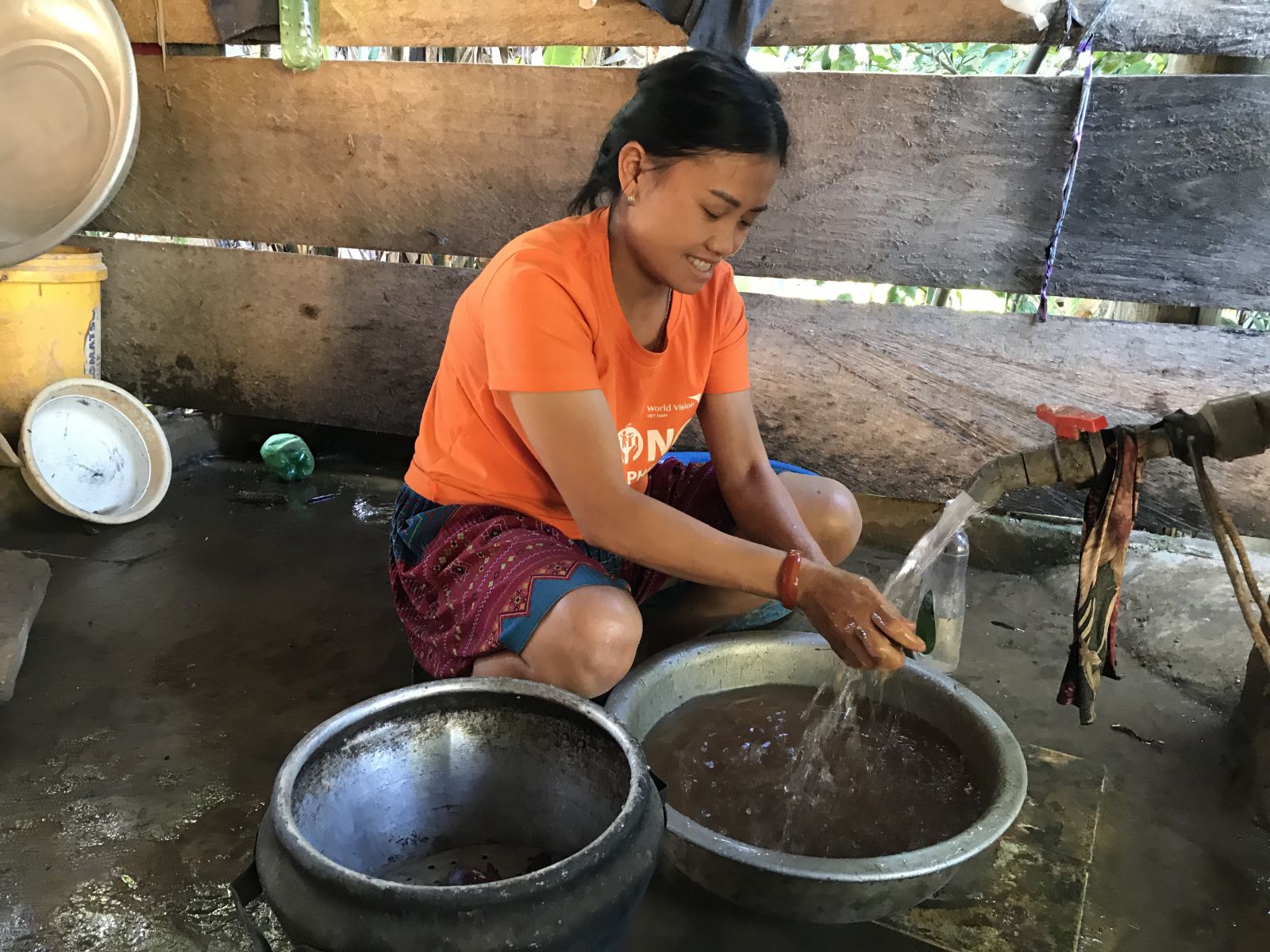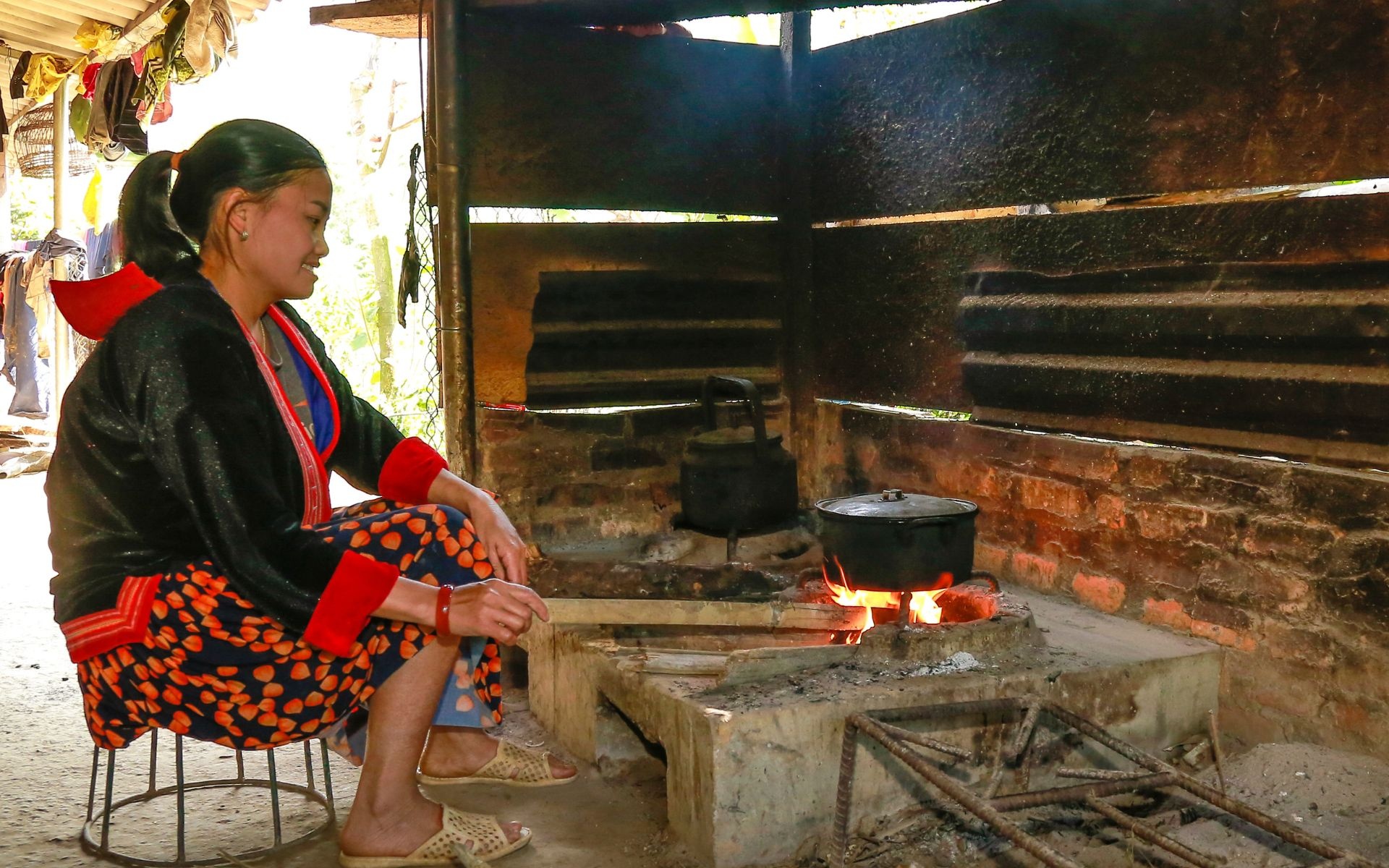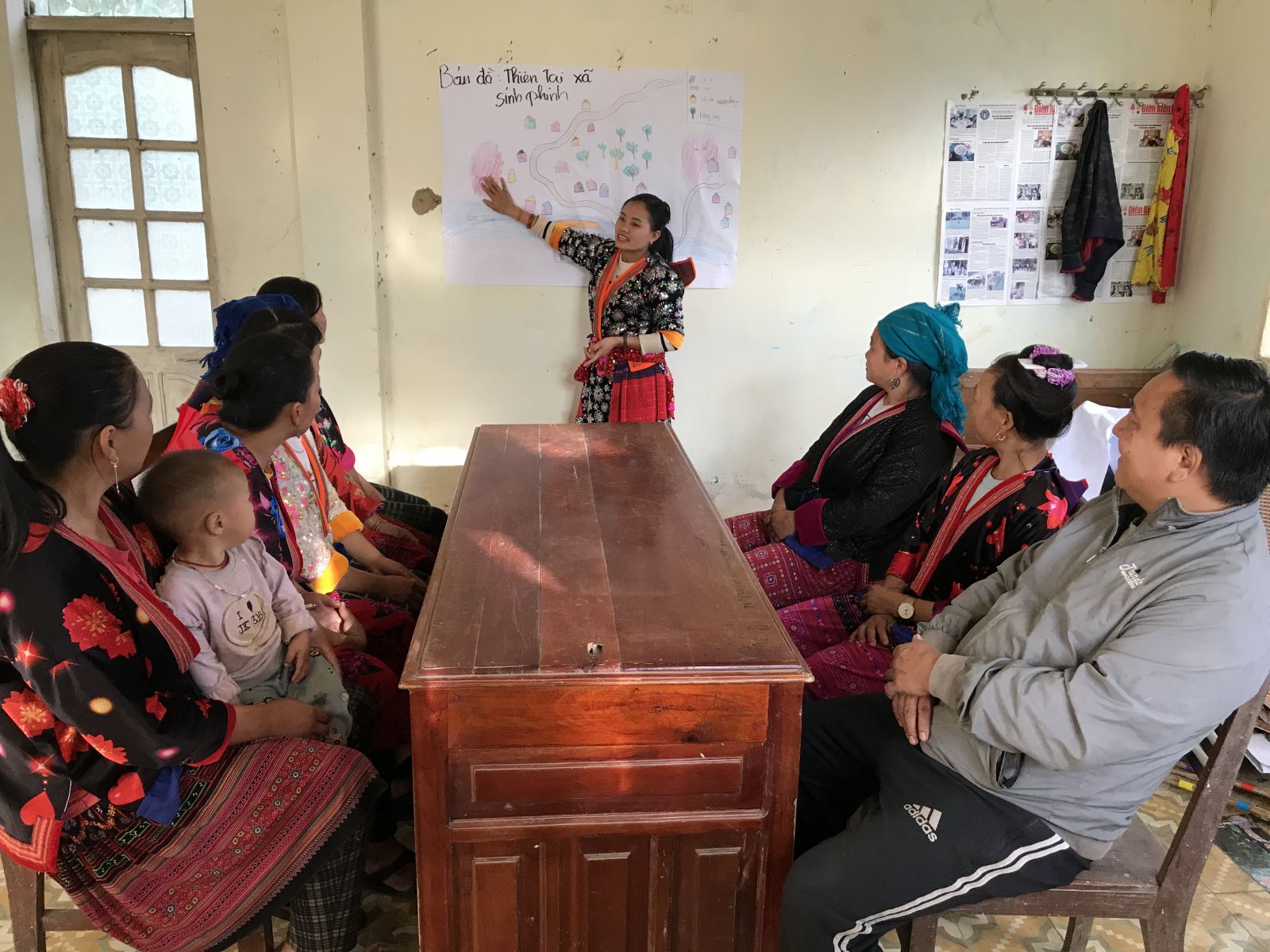“You need to clean off the ashes on the top for the stove to ‘breathe’ and give you big fire…” Cha listened attentively to World Vision Viet Nam officer’s instructions, as she would soon be giving home visits to help other households in her village set up fuel-efficient stoves.
Those stoves were among the interventions and initiatives made possible by World Vision Viet Nam’s special project to enhance ethnic minorities’ resilience to disaster in Điện Biên province.
The poverty. The cold. And now, the landslides.
In Tủa Chùa district (Điện Biên province), up to 98% of the population are ethnic minority people who rely mainly on traditional slash-and-burn farming, keeping the district’s poverty rate at an alarmingly high rate of 41.9% (2020). Located in the mountainous northern part of Việt Nam with limited infrastructure and social resources, the area suffers bitter winters that kill off the already-meager livestock and crops.

In recent years, Tủa Chùa has experienced more and more unpredictable changes, adding more dire challenges to the lives of ethnic minority communities. As two-thirds of the district are uphill terrains, the area was especially vulnerable to landslides. In 2019 and 2020 alone, tropical storms and heavy rains caused serious landslides and flash floods across the district, amounting to 34.1 billion VND (1.4 million USD) of damage to infrastructure, crops, livestock, houses, and community members.
Staying with her husband and two young children in a wooden cabin resting at a steep foothill of Tà Là Cáo village, Sính Phình commune, every time when it rained heavily, Cha’s stomach would turn. “All the rainwater would come rushing down from the hill and flood our house, disrupting our lives. Whenever it happened, the bad water would give the kids and me bad rashes. Our animals did not have enough to eat, and our crops were submerged in deep water, making production go down badly. Many times, we were empty-handed,” Cha recalled.
A holistic approach
Realizing the increasing challenges of extreme weather events and climate change in the area, World Vision Việt Nam has been integrating disaster risk reduction and resilience-building initiatives its programs and activities in Điện Biên province. Specifically, in 2020, World Vision Việt Nam launched the “Điện Biên Ethnic Minorities Resilient to Disasters” (DEMRD) special project with funding from the German Relief Alliance (ADH). With a support package of 202,774 USD, the two-year project focused on strengthening ethnic minorities’ preparedness for extreme weather events through livelihood and living condition improvement and capacity training.
As the water system would be one of the first things to be affected after the floods, through the DEMRD Project, World Vision Việt Nam identified households in low-land areas that are vulnerable to flashfloods and provided them with 1000-liter water tanks to safely secure and store water during the flood season. Thanks to the support, along with World Vision’s regular training on treating water sources at home and good water-hygiene-sanitation practices, 100 households in Tuần Giáo, 91 of which were classified poor, were able to improve their living conditions and protect themselves from water-borne diseases after the flood.
Understanding that financial resources play an essential role in enhancing local people’s preparedness for disasters, World Vision Việt Nam prioritized interventions that help the beneficiaries – most of whom are of low-income, ethnic minority communities – develop sustainable livelihood means that are more resilient to the region’s extreme weather events. In addition to providing breeding cows for 65 most vulnerable households across Tuần Giáo, World Vision organized regular training sessions on adaptive farming techniques to cope with the harsh winter and violent flash floods for community members. Through such sessions, Cha and other participating households learned to protect livestock before cold spells and storms, make biotic fertilizers to utilize farming waste, and create bioproducts livestock to boost their immune systems. Thanks to the training, Cha then knew to spot signs of extreme weather to harvest her crops early and prepare food and shelter for her cows, minimizing any loss during the event. At the same time, through World Vision’s regular communication sessions on disaster risk reduction, the participating households learned to design response plans, outlining the necessary preparations and actions to take before, during, and after disasters for each family.
Seeing the woods for the trees
Being a key collaborator of World Vision Việt Nam since 2012, Cha had already been quite familiar with and skilled in supporting the Organization’s programming and, most recently, DEMRD Project’s disaster risk reduction activities. One particular initiative stood out to her, for it changed the way Cha thought about how small actions could bring monumental impacts, and it was the fuel-efficient stove initiative.
The open, three-point stove had been a staple in many H’Mông families in Điện Biên for generations, providing essential functions from cooking, preserving food, and warming the house during the winter time. But, its open structure would need five or six good, big lumps of wood just to get a fire and cook a meal. Each year, a H’Mông family in Tà Là Cáo village could consume up to tens of cubic meters of lumber, equivalent to several fully-grown wooden trees. This practice, along with the local traditional slash-and-burn farming method, gradually stripped off many once-green hills and forest banks, leaving low-land areas all the more vulnerable to erosion and landslide in the rainy season.
Realizing this issue, World Vision Việt Nam launched the fuel-efficient stove initiative and started working closely with active collaborators like Cha to help them set up built-in stoves for their own homes and then persuade other households to join. With just 450,000 dongs (approximately 19 dollars) for materials and set-up, the broad, closed-combustion stove allowed two burners while minimizing escaped heat, which not only helped save burning fuels and cooking time but also decreased toxic byproducts like ashes and smoke.
Being a full-time civil servant and mother, Cha knew how much time and effort this stove could help her and other mothers save from the mere task of collecting wood and cooking. And on top of everything, the stove structure was not too labor-intensive to build, making it easier for Cha to persuade and help her fellow sisters set up their stoves. With Cha’s earnest endorsement and avid support, 38 out of 66 households in her village switched to using the new stoves.
“Back then, my family could use up to several lumber cubic meters a year, and it would take us 2 to 3 weeks just to fetch the woods. After we switched to this wood-saving stove, we only need a few small lumps to keep a big fire, compared to 5 or 6 big ones when we were using the old stove. If everyone in the village uses this kind of stove, we will save a lot of wood,” Máy, an early adopter of the initiative and World Vision’s key collaborator at Tà Là Cáo village, shared enthusiastically.
“Saving woods means saving more trees. And this stove also helps us save time fetching for those woods. I can spend that time caring for my children and family. To me, this is a practical and effective initiative for the people in my village and across Tủa Chùa Area Program. A small initiative can bring back meaningful impact,” Cha emphasized.
By 2022, the DEMRD Project supported another 150 poor and near-poor households across Tuần Giáo district to switch to portable fuel-efficient stoves, in addition to other interventions and activities in livelihoods and disaster risk reduction that help more than 25,000 people in Tủa Chùa and Điện Biên Đông districts (Điện Biên province) build up their resilience and implement community-based solutions to cope with the increasingly extreme weather events and natural disasters.
--
With the increasingly complex nature of climate change, Việt Nam is among the most affected countries by extreme climate events and suffers from severe loss and damage. To address this situation, World Vision Việt Nam has been working closely with international, national, and local partners to provide immediate emergency relief and recovery programs, as well as long-term livelihood interventions and capacity training, to help the community enhance resilience against disasters and climate change. Such efforts aim to ensure the well-being of children and community members, especially the most vulnerable ones.


